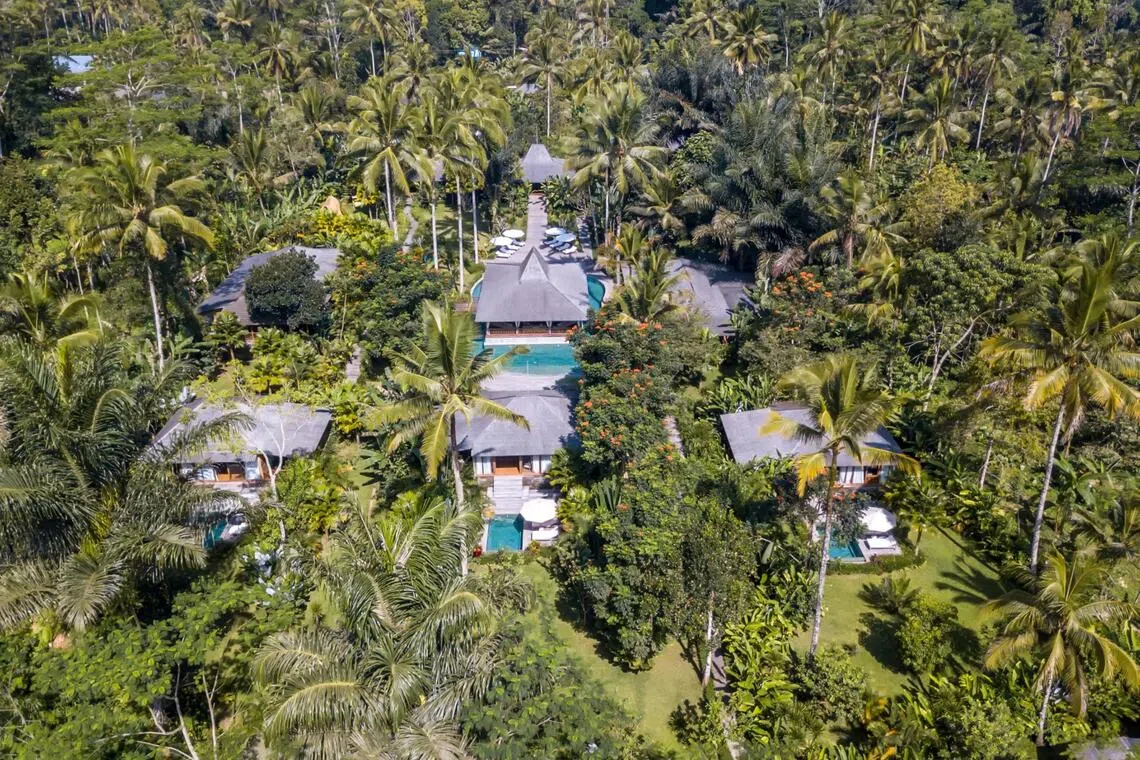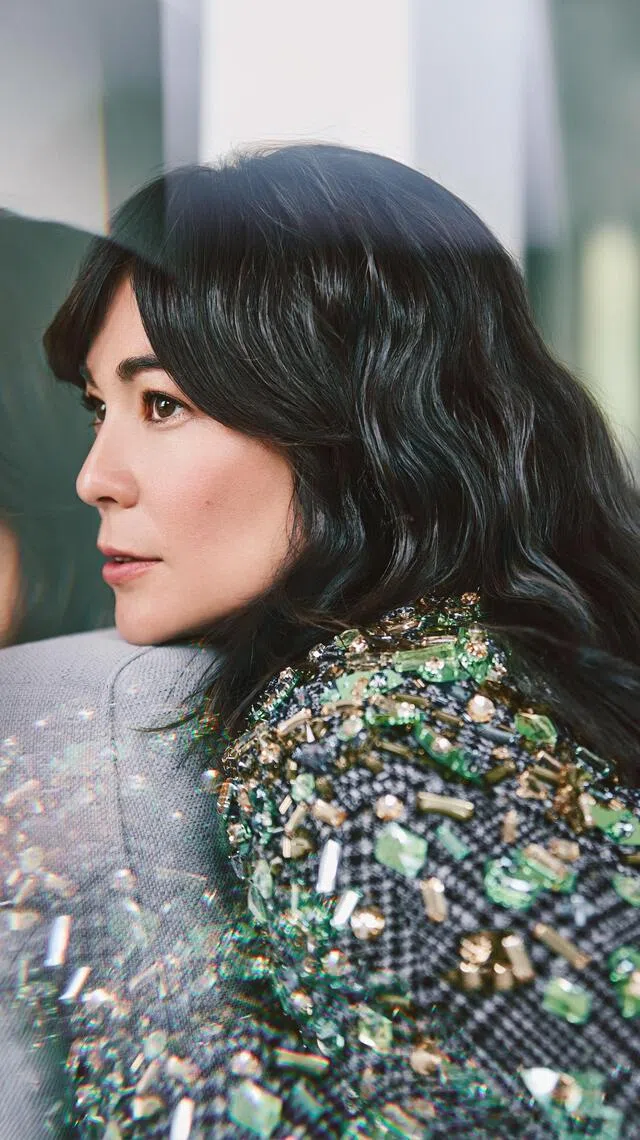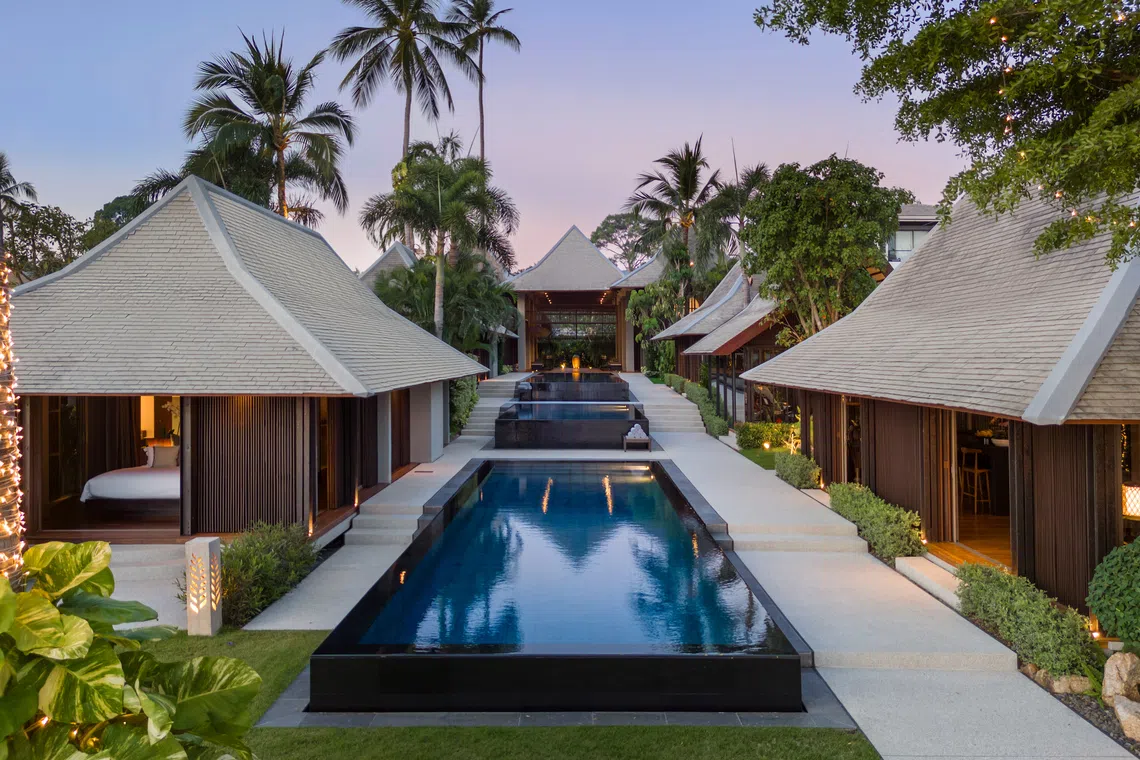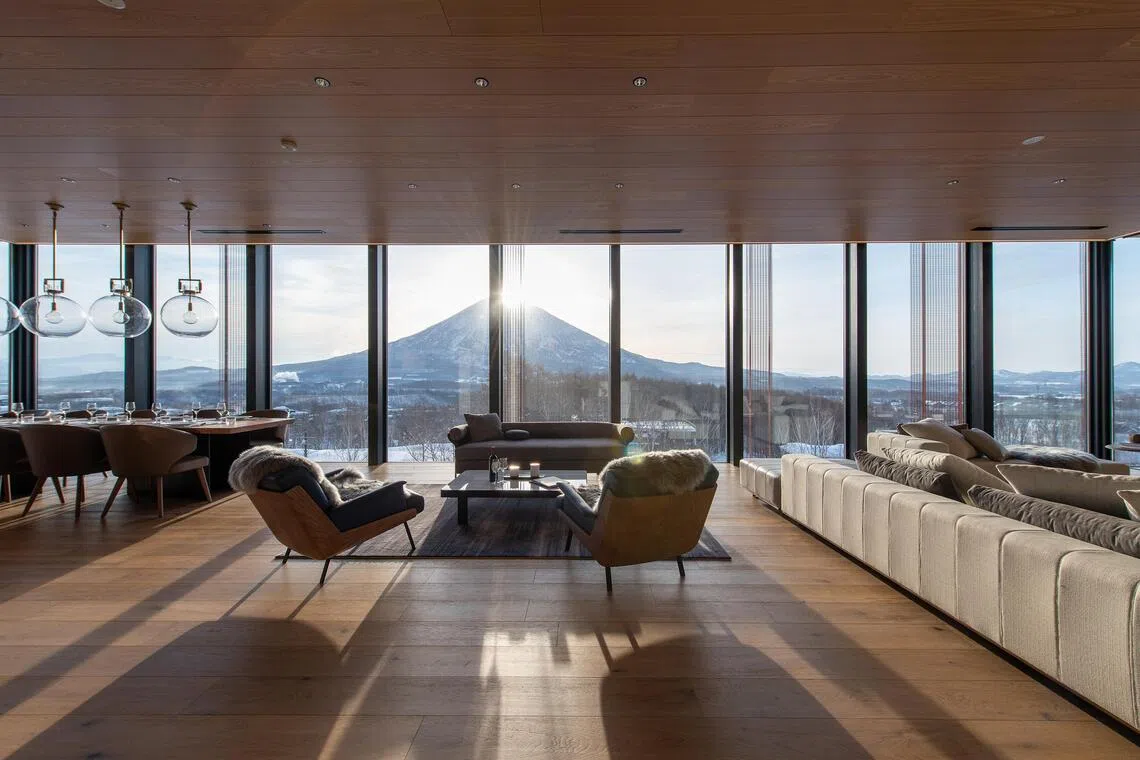Stephanie Chai: The ex-model redefining luxury villa vacation rentals in Asia
The Luxe Nomad grew from a flash-sale website to a US$63 million hospitality business

AVAILABLE TO RENT, THE NAG Shampa Private Estate in Bali is less about glitz and more about breathing space. The jungle sanctuary offers eight en-suite bedrooms for up to 16 guests, five pools, a yoga shala, massage studio and lush orchards that supply ingredients to the kitchen. Guests may start the morning in meditation, spend the afternoon exploring nearby temples with a private driver, and finish the day with dining under lantern light.
“This is what I think of when I say luxury today,” says Stephanie Chai, founder and CEO of The Luxe Nomad. “It’s not just a beautiful place – it’s privacy, freedom, and being able to have breakfast at two in the afternoon if you feel like it. It’s your own private hotel.”
Nag Shampa, owned by Sam Branson – the son of Richard Branson – and his wife, Isabella, is one of more than a hundred villas, chalets and boutique properties managed by The Luxe Nomad across the Asia-Pacific. Over the past decade, Chai has transformed her company from a flash-sale website into the region’s largest luxury vacation-rental manager, overseeing 1,400 rooms and generating US$63 million in annual sales.

From modelling to management
Chai’s path into hospitality was anything but straightforward. Born in New Zealand to a Malaysian father and Italian mother, she studied finance and international business, but chose a career in front of the camera. She modelled for more than 50 commercials for brands such as Olay and Citibank, and hosted Luxury China on Channel NewsAsia.
The glamour, however, didn’t quench her entrepreneurial thirst. In 2012, she invested S$60,000 of her savings to launch The Luxe Nomad as a flash-sale accommodations booking platform. The concept had gained traction in the US, but was untested in Asia. The reality was far harsher. “We didn’t have brand recognition, we didn’t have tech talent, and I didn’t know what I didn’t know,” she recalls. “The first few years were brutal.”
For nearly five years, Chai kept the business alive by constantly reducing overheads and building systems from scratch. She sometimes had to take pay cuts herself to make sure her staff were paid. In 2015, she trained her first eight Manila employees in a friend’s basement – a bare-bones start to what is now a 50-person back office.
Navigate Asia in
a new global order
Get the insights delivered to your inbox.

It was a test of sheer persistence. “It takes years of proving yourself before owners and investors believe you’re here to stay.”
The move that changed everything
In 2014, she had proposed shifting focus beyond listings to include full villa management. Her board felt she wasn’t ready. By 2016, after more grind and growing conviction, she tried again. This time they agreed. “Airbnb and Booking.com are incredible platforms, but they don’t own the guest experience,” she says. “I wanted The Luxe Nomad to be like Marriott for villas – to manage the homes, not just market them.”
Persuading villa owners was the hard part. “Every villa is someone’s baby,” she says. “Convincing them takes months of coffee meetings. But once they hand over management, that’s when we can truly transform a property.”

One of the toughest tests came in Thailand, where she inherited a troubled portfolio with a toxic work culture and unhappy owners. “It was heavily over-hired… I had to cut a third of the workforce,” she recalls. “At one point, I had to deal with 50 villa owners, and 90 per cent wanted to leave. It took two to three years of rebuilding trust before things stabilised.”
By 2023, Chai was ready for her boldest move yet: acquiring Nisade, a Japanese ski property group with 900 rooms across 24 properties. Niseko is one of Asia’s hottest winter destinations, crowded with developers and rival managers. Buying Nisade was a leap in scale that nearly collapsed over the financing.
To secure funding, Chai visited a family-office investor, bearing pandan cake and pineapple tarts. The meeting lasted two hours, most of it spent talking about his other businesses. “By the end of it, he offered me half the funding… Sometimes business is human. You can’t spreadsheet your way through everything,” she says.

Within a year, Nisade’s sales doubled, cementing The Luxe Nomad’s place as the Asia-Pacific’s largest luxury vacation rental manager. Today, 80 per cent of its revenue comes from booking commissions and 20 per cent from management fees. Its FY2025, which ended in April, closed Ebitda-positive – referring to earnings before interest, taxes, depreciation and amortisation – with gross sales up 25 per cent year-on-year.
The company employs nearly 200 staff across Bali, Thailand and Japan, supported by the 50-person Manila back office that began in the friend’s basement.
How to stand apart
Chai is quick to distinguish her company from the giants. “Airbnb and Booking.com are not our competitors – we list on them,” she says. Her real rivals are smaller villa managers who struggle to standardise service across their portfolio. “Managing five villas costs almost the same as fifty. The way to do this well is scale, technology and trust.”
Leaning on technology, The Luxe Nomad’s artificial intelligences bots – Bella for concierge, Kai for reservations – handle routine queries, flag birthdays, and free staff up for higher-touch service. Bella alone has lifted engagement to about 50 per cent and guest satisfaction to 92 per cent.
Chai’s idea of luxury avoids chandeliers and cliches. Instead, it’s about hotel-grade consistency inside homes that feel singular. In Koh Samui, the Praana Residence sprawls across six bedrooms with a Muay Thai boxing ring, a cinema with plush recliners, and enough playrooms and lounges to feel more like a private resort than a single villa.

In Bali, Akashi Residence adds whimsy to modern glamour with a gleaming spiral slide that drops into the pool deck, alongside a gym, yoga terrace and ice bath. And in Niseko, hotel-condo Intuition blends stillness with spectacle, with penthouses set among birch trees that pair private indoor and outdoor onsens with views of Mount Yotei.
Every property is different, yet the service promise is the same: It’s being cared for without being fussed over.
Relentless hospitality
Behind the tranquil images, the work is constant. Chai stays close to operations across the region, “glued to WhatsApp” chats that cover everything from late check-ins to housekeeping snags. “If there’s a problem in Koh Samui or Niseko, I see it right away,” she says. “It’s not about micromanaging, it’s about staying connected.”
She sits with junior staff, rotates through offices, and celebrates milestones – even flying the entire company to Bangkok when targets are met. She calls The Luxe Nomad a “mini United Nations”, with employees from multiple countries working across time zones. “That culture of openness is what keeps us competitive. Everyone knows they have a voice.”
And with guests, she remains personally accountable. “I’ll still get on the phone if something goes wrong,” she says. “When it’s serious, I step in to make sure it’s resolved and they leave happy. Someone may have saved for years for this trip – I don’t take that lightly.”
Despite the glossy optics of infinity pools and ski chalets, her journey is one of persistence and grit. “Luxury travel is about the details,” she says. “But running this business? That’s about resilience. It’s about waking up every day and figuring it out.”
Chai smiles when asked about the future. “We’ll keep growing,” she says, “but never at the cost of what makes us different. In this business, trust is everything.”
Photography: Darren Gabriel Leow
Fashion direction: CK
Hair and make-up: Sophia Soh at The Suburbs Studio, using Chanel and Kevin Murphy
Decoding Asia newsletter: your guide to navigating Asia in a new global order. Sign up here to get Decoding Asia newsletter. Delivered to your inbox. Free.
Copyright SPH Media. All rights reserved.




